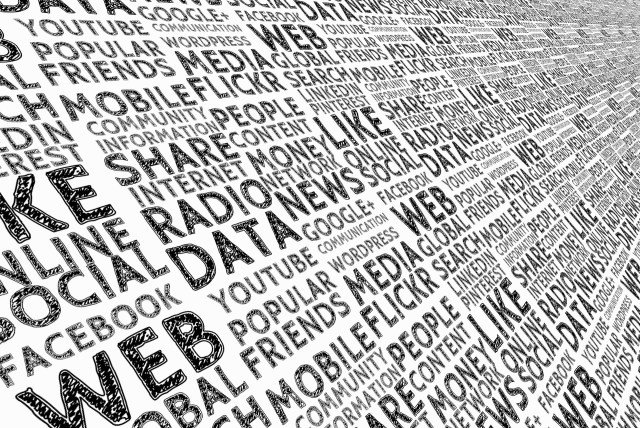
Anyone hoping to make a list of the things you can’t rely on the media in order to understand is going to need much more than a week.
Disability (Linnet McIntyre).
Today’s war in Ukraine (Allan Mallinson).
Europe (Ian Birrell).
…And as the series continues all entries are being collected here.
For instance, it is true, as Tom Chivers argued, that the media cannot be relied on to report science – and especially not medical science – properly. And such is the scale-back of interest or coverage (the two are inextricably connected) from Africa (a topic Katie Harrison highlighted) that it is no longer unusual for an event to occur at one end of the continent and for even the BBC to head to the opposite end of Africa to speak to a reporter. As if this was in any way more helpful than reporting from a studio in London. It is also undoubtedly true, as Giles Fraser argued, that the media can’t be relied upon in order to understand religious people.
But if various of these things have something in common it is (if I may say so) my own recommendation: any rounded understanding of abstract notions, including abstract principles. This might sound mighty abstract itself, so allow me an example.
I first noticed it in my work on borders. Though there are some borders (notably that between Britain and the continent) which are natural, many are an abstract principle of a kind. People understand that the difference between Belgium and Holland, for instance, is both real and abstract. The border only exists because it is said to be there but it is a border. And as governments in Vienna and Budapest (among other places) have demonstrated in recent years, what seemed a nicety can be turned back into a real thing at almost any moment when circumstances demand it.
The point is that most people believe in borders. Very few people believe in a borderless world. Nevertheless, anybody defending the idea of a border in the contemporary media environment finds themselves in a quandary. Not because the principle of borders is indefensible but because in the era of mass media and social media all abstract principles can be at any moment, and unbelievably swiftly, forced to meet a real-life victim of that principle. Metaphorically and literally. On Twitter, Facebook and other mediums, people can object to the holding of the abstract idea – in this case borders. Broadcasters and traditional media can seize on such cases and even bring them into studios at incredible speed. And so we arrive in the new media age, where emotion (which is not only a bad thing, but is not an unalloyed good in matters of truth, either) is continuously brought in to confront the abstract idea.

The difficulty of sustaining abstract ideas in the age of emotion lies all around us. It does not invalidate the abstract idea, but it does subvert it and hit it on terrain which is at once both relevant and irrelevant. For instance, defend the principle of borders on a television programme and you may be shown a picture of a dead child whose family failed to make it over a particular border. Suddenly the defence of borders is not a defence of an abstract principle which also happens to be one of the most basic assurances of the security of any nation and its people. Rather the defence of borders means the support of, or contentment with, the death of a child. In such a situation, the abstract principle is almost always going to give way. At least in the studio. The bow must be to the immediate, often quite swiftly passing, public sentiment. But outside the studio the greater and more lasting public sentiment (the defence of national principles including national self-determination) returns. But it does so quietly. In the age of mass media, abstract principles – unless the stars happen to align with passing moods and recent examples – are not for the studio.
Once you notice this happening, you notice it all around.
Jacob Rees-Mogg, for instance, was torn apart by the horses of social media last year when he said in a live television interview that he was in favour of the Catholic church’s traditional stance on abortion. Whatever the media and the Twitter-sphere implies, the Roman Catholic Church’s stance on abortion is held by a fair number of people. Most of the world’s Catholics, to name but one group. I happen not to be in agreement with that principle myself, but it is a principle derived from a serious body of tradition and thought. It was not thrown up yesterday, as an idea, but is a concept which is undoubtedly central to the Catholic view of the sanctity of life and the origins of human value.
In that same interview Rees-Mogg also expressed his support for the Vatican’s teaching on gay marriage. Again, for what it is worth, I happen not to be in agreement with that teaching but I recognise that the church holds it and professes opposition to it not because of some concerted effort to be homophobic but because the Catholic view of the family is a very specific and doctrinally clear view.
Douglas Murray writing in December 2017.
Rees-Mogg caveated these comments by rightly, and repeatedly, pointing out that he had no intention ever to attempt to express these beliefs in anything like a legislative fashion. They are matters of private conscience for him. But again, the abstract principle he was holding to was not only not given an airing, or a fair hearing – it was treated as though it was the most thoughtless, impulsive display of ignorance imaginable. And as though people on social media who responded by saying that they were ‘offended’ were a legitimate counterweight to a principled position.
Of course, it is all good story-fodder. Tabloids and broadsheets are happy to run stories which talk of a ‘backlash’ after public figures voice almost any opinion: even – or especially – when the ‘backlash’ consists of no more than a couple of people on Twitter saying that they don’t like what has been said. And so almost the whole body of intellectual thought that has brought us to the place our societies are in – whether religious, or political in origin – seem at any moment able to be washed away on a tide of current feeling.
Naturally this is in part the fault of the many public figures that buckle before such tides but the media should be aware of their role in this. No opinion could have total support from every reader or viewer. In the same way, no abstract principle is going to be agreed upon by everyone on Twitter. Sticking feelings against principles does a disservice to both. Using emotion as a counterweight to thought-through positions diminishes both. But the modern media has undoubtedly exacerbated a tendency to respond to ideas with emotion and to principles with feelings. Until principles are countered by other principles, and ideas with other ideas this process will not just diminish the discussion of ideas, but make all such discussion impossible.
> Please click here if you’d like to join UnHerd’s mailing list and receive notification of all columns by Douglas Murray – and from our other regular contributors.










Join the discussion
Join like minded readers that support our journalism by becoming a paid subscriber
To join the discussion in the comments, become a paid subscriber.
Join like minded readers that support our journalism, read unlimited articles and enjoy other subscriber-only benefits.
Subscribe